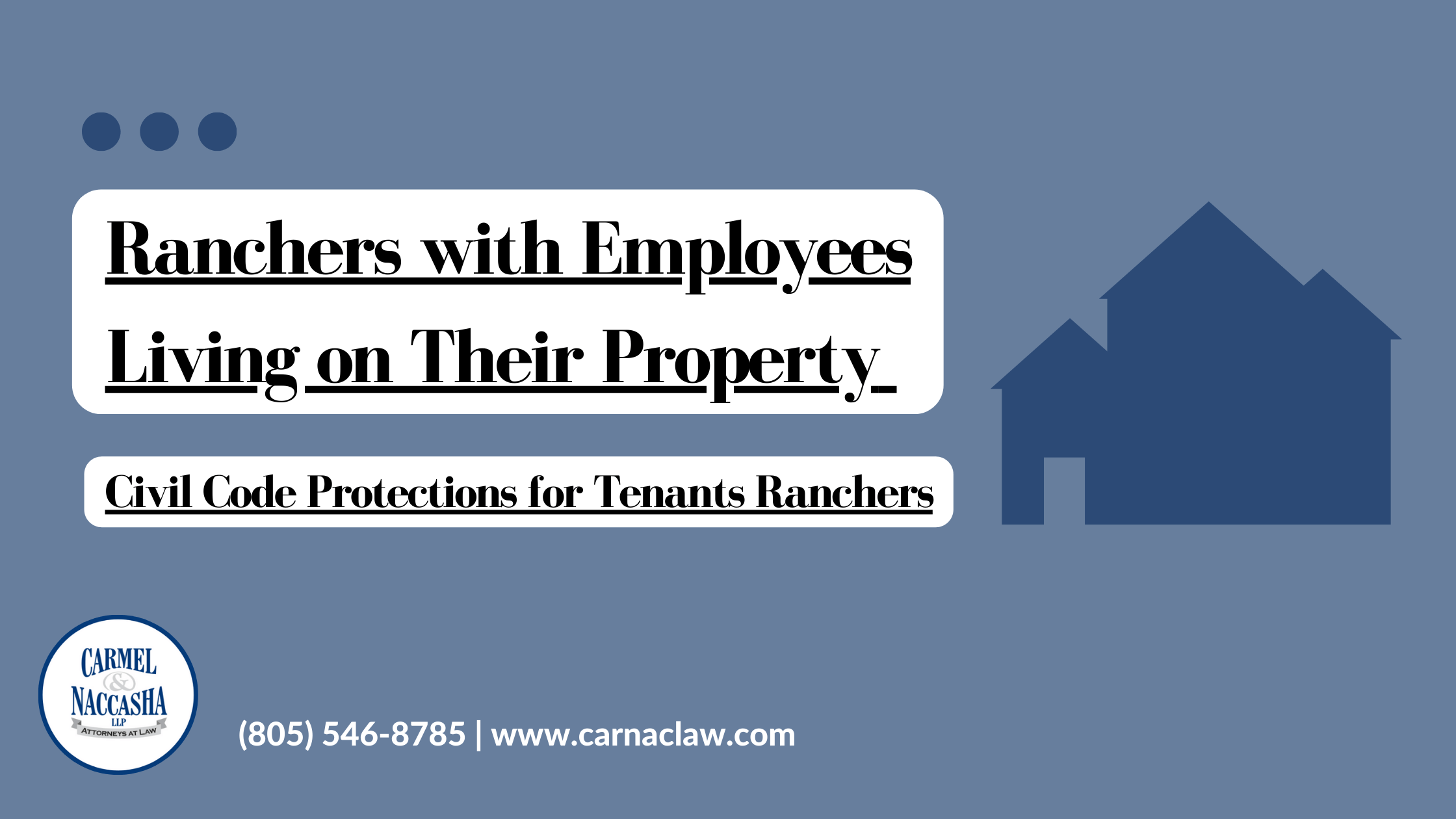For California Homeowners with Ranch Property in Rural Areas
Are you an owner of rural property in California or San Luis Obispo County who has people living on and caring for your ranch and need guidance regarding your employees’ rights as tenants on your property? This article may be for you.
Who Is a Lodger, Who Is a Tenant, and Why Does That Matter?
A lodger is a person who contracts, by payment of money, labor, or other exchange, with the owner of a dwelling for a room “within the dwelling unit personally occupied by the owner, where the owner retains a right of access to all areas of the dwelling unit occupied by the lodger and has overall control of the dwelling unit.” A tenant “includes any paying guest, lessee, or sublessee of any premises for hire.” Unlike a lodger, the owner has a right of access to a dwelling unit occupied by a tenant only in certain circumstances, such as an emergency and to make agreed upon repairs, and must give the tenant reasonable notice, likely in writing, of the landlord’s intent to enter.
So, What Does This Mean?
The California Civil Code and California Code of Civil Procedure provide rights for persons who are tenants and lodgers. They only give the right to the eviction (unlawful detainer) process in court with respect to tenants and not to lodgers. Well, if you are living in the same house as your employee and have access to all the rooms in the house, your employee may be a lodger, and they may not have the right to the eviction process that California law offers. So, if your employee has his or her own place that you do not have control over, then they might be a tenant, and thus you (and they) have the right to an eviction proceedings process.
A lodger does nonetheless have some rights regarding eviction. The landlord must give a lodger proper notice in person or certified or registered mail to terminate the lodging contract (if any). The notice must give the lodger a certain amount of time to move, which depends on the nature and terms of the contract. For example, if the agreement is month to month, the landlord will need to give the lodger at least 30-day’s notice to leave. If these noticing requirements are met, and the notice expires, then the lodger has no right to be on the premises and the landlord can seek their removal “pursuant to the provisions of Section 602.3 of the Penal Code or other applicable provisions of law.”
In our next segment, we discuss the definition of what constitutes retaliation against tenants/lodgers and the rules and recommended guidance to defend against a claim of retaliation.
(Cal. Civ. Code § 1946.5; Cal. Civ. Code § 1942.5;; Cal. Civ. Code § 1954; Cal. Civ. Code § 1980 )
Contact a Legal Professional
The information provided herein does not, and is not intended to, constitute legal advice; instead all information, content, and materials are for general informational purposes only. Neither this website nor this post are intended to create an attorney-client relationship.
If you have any questions regarding the Tenant Protection Act, please contact Carmel & Naccasha, and for more details, read our full disclaimer.

